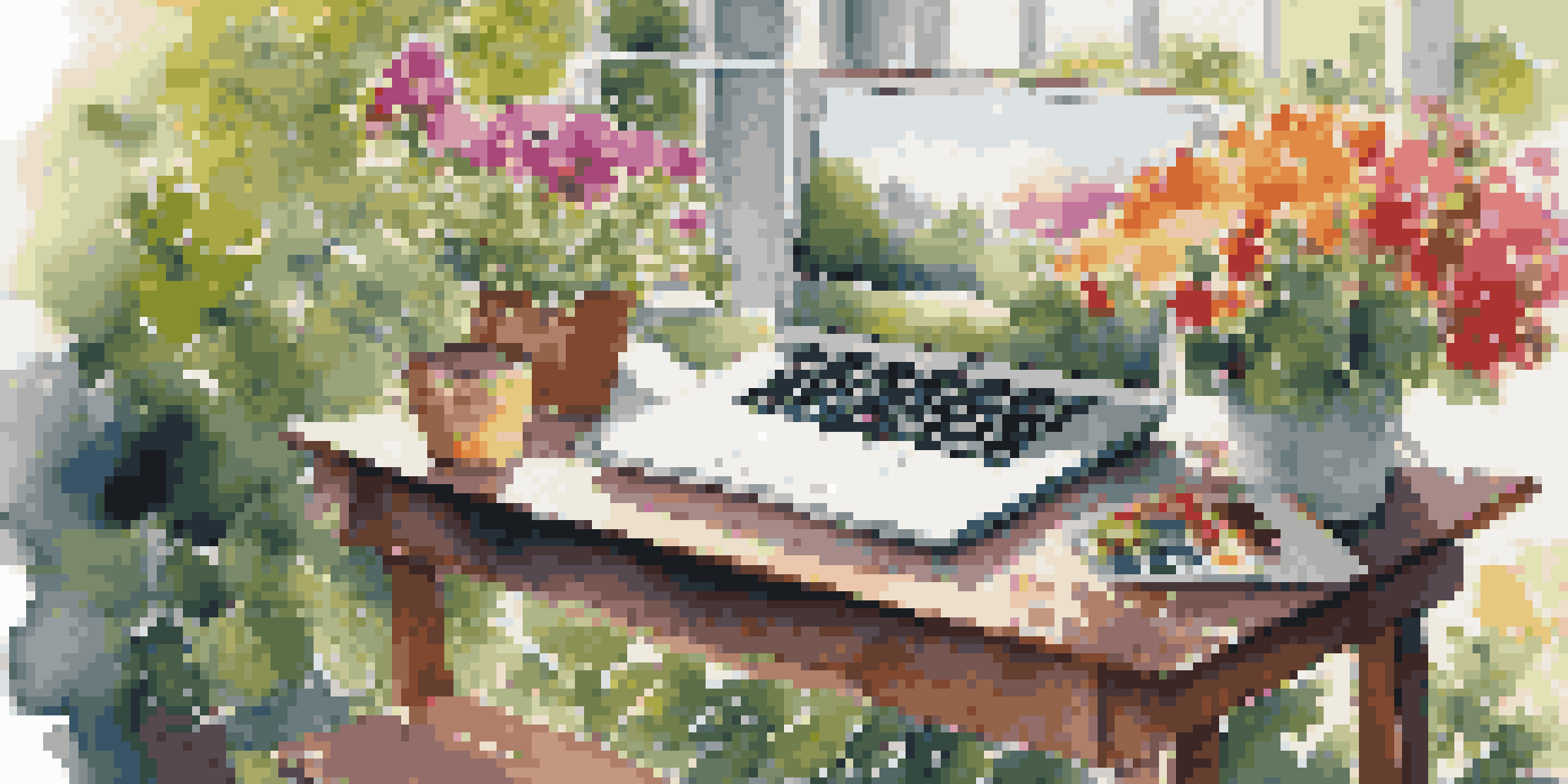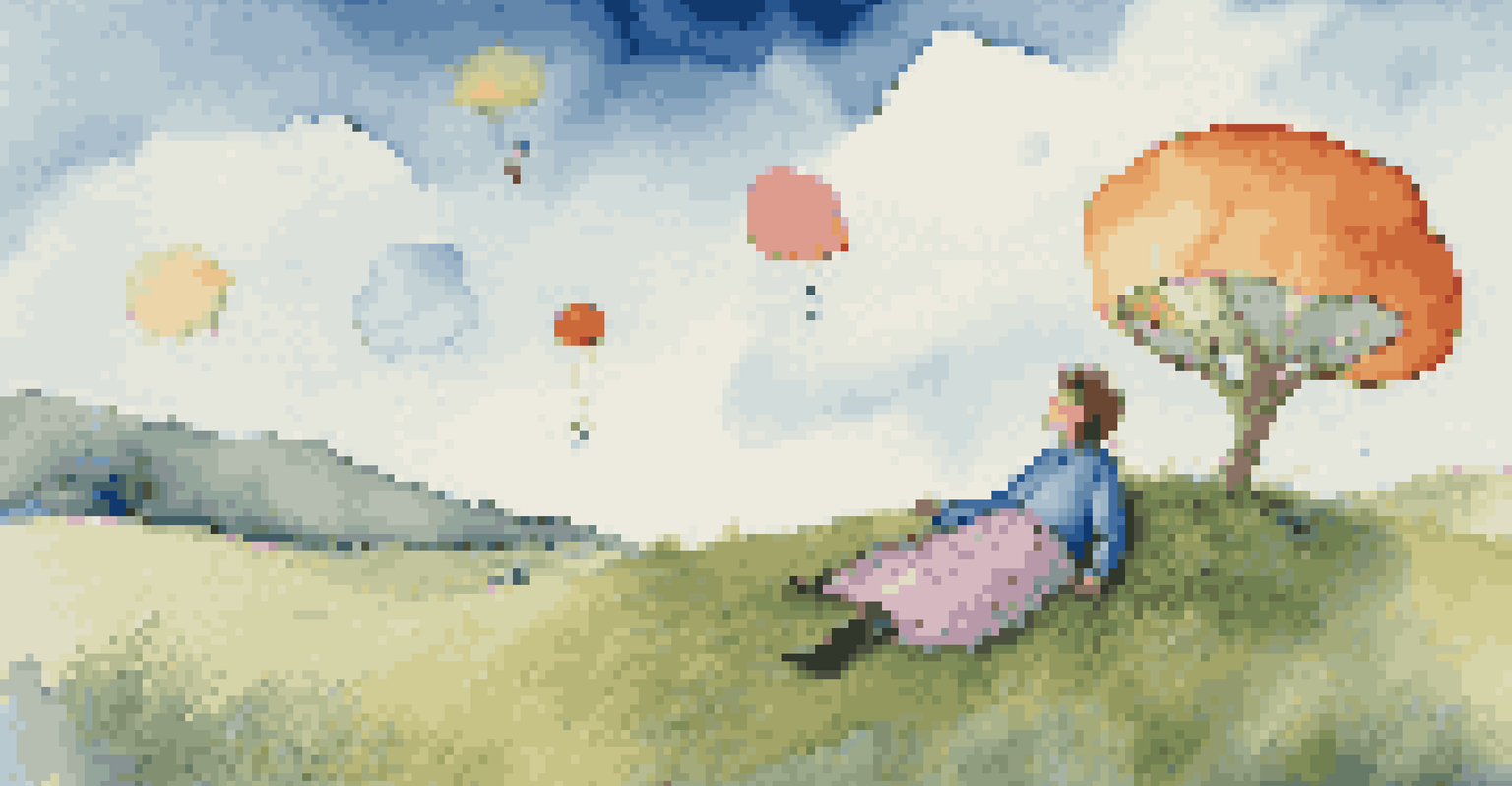The Art of Play: Infusing Creativity into Everyday Life

Understanding the Importance of Play in Creativity
Play is often seen as something reserved for children, but its importance extends into adulthood. Engaging in playful activities can stimulate creativity, helping us think outside the box. Remember, when we play, we allow ourselves to experiment without the fear of failure, which is crucial for innovative thinking.
Play is the highest form of research.
Additionally, play can reduce stress, clearing mental clutter and opening up space for fresh ideas. When we take time to play, we momentarily step away from the pressures of daily life, allowing our minds to wander freely. This wandering often leads us to unexpected connections and insights.
Incorporating play into our routines not only boosts creativity but also enhances our overall well-being. It’s a gentle reminder that life doesn't always have to be serious. By embracing play, we foster an environment where creativity can thrive.
Simple Ways to Integrate Play into Your Daily Routine
Integrating play into your daily life doesn't require a complete overhaul of your schedule. Start small by setting aside a few minutes each day for playful activities. This could be doodling, playing a quick game, or even enjoying a silly dance break in your living room.

Another great way to invite play is to change your environment. A new setting can spark creativity, so consider rearranging your workspace or taking your meetings outside. Even a short walk in nature can provide a refreshing perspective and inspire new ideas.
Lastly, don’t underestimate the power of collaboration. Engaging with friends or colleagues in playful brainstorming sessions can lead to innovative solutions. The joy of shared laughter can break down barriers and foster a more creative atmosphere.
The Role of Imagination in Everyday Play
Imagination is the heart of play, allowing us to visualize possibilities beyond the ordinary. When we engage our imaginations, we tap into a wellspring of creativity that can enhance our problem-solving skills. Just think of how children create entire worlds with simple toys; this ability doesn’t have to fade as we grow older.
Creativity is intelligence having fun.
To harness your imagination, try setting aside time for daydreaming. This might sound counterproductive, but letting your mind wander can lead to innovative ideas. You might find that the solutions to your challenges come to you when you're not actively searching for them.
Additionally, engaging with stories—whether through books, films, or art—can ignite your imagination. Letting narratives inspire your own creative pursuits can be a delightful way to weave play into your daily life.
Overcoming the Barriers to Playfulness
Many adults face barriers to playfulness, often stemming from societal expectations or self-imposed pressures. The belief that we must always be productive can stifle our creative spirits. Acknowledge these feelings and remind yourself that play is not a waste of time, but rather a gateway to creativity.
Another barrier can be the fear of judgment, especially in work environments. To combat this, create a safe space for playful exploration, where ideas can be shared without criticism. Encourage a culture where experimentation is valued, allowing everyone to contribute their playful ideas.
Lastly, remember that play is personal. What feels playful to one person might not resonate with another. Take time to discover what activities bring you joy and allow yourself the freedom to engage in them without guilt.
Celebrating the Small Wins in Your Creative Journey
Celebrating small victories can enhance your motivation and reinforce playful habits. Whether you’ve completed a creative project or simply tried something new, acknowledging these moments is essential. This celebration can be as simple as sharing your progress with a friend or treating yourself to something special.
By focusing on the journey rather than just the end result, you cultivate a mindset that values creativity. This approach encourages you to explore and take risks without the pressure of perfection. Over time, these small wins can accumulate, leading to significant creative growth.
Moreover, creating a visual reminder of your achievements, like a progress board or a journal, can help you stay motivated. Each small win is a building block toward your larger creative goals, reinforcing the importance of play in your life.
How Playfulness Fuels Innovation in the Workplace
In the workplace, playfulness can lead to groundbreaking innovations. Companies that foster a playful culture often see higher employee engagement and collaboration. When employees feel free to experiment and have fun, they are more likely to contribute unique ideas.
Consider incorporating playful elements into team meetings or brainstorming sessions. Activities like ice-breakers or creative challenges can inspire fresh thinking and encourage teamwork. This collaborative play can transform the workplace into a hub of innovation.
Moreover, organizations that prioritize playfulness often attract top talent. People are drawn to environments that value creativity and enjoyment, making it a win-win situation. By embracing play, businesses not only boost their innovation potential but also enhance their company culture.
The Lasting Impact of Play on Personal Growth
Play isn’t just a temporary escape; it can have lasting effects on personal growth. By regularly engaging in playful activities, you develop resilience and adaptability. These traits are essential for navigating the ups and downs of life, making you better equipped to face challenges.
Additionally, the joy derived from play can foster a more positive outlook. A playful attitude helps cultivate gratitude and mindfulness, allowing you to appreciate the little moments in life. This shift in perspective can lead to enhanced overall happiness.

Finally, embracing play as a lifelong practice encourages continuous learning and curiosity. As you explore new interests and hobbies, you keep your mind active and engaged. In this way, play becomes a powerful tool for personal development and fulfillment.